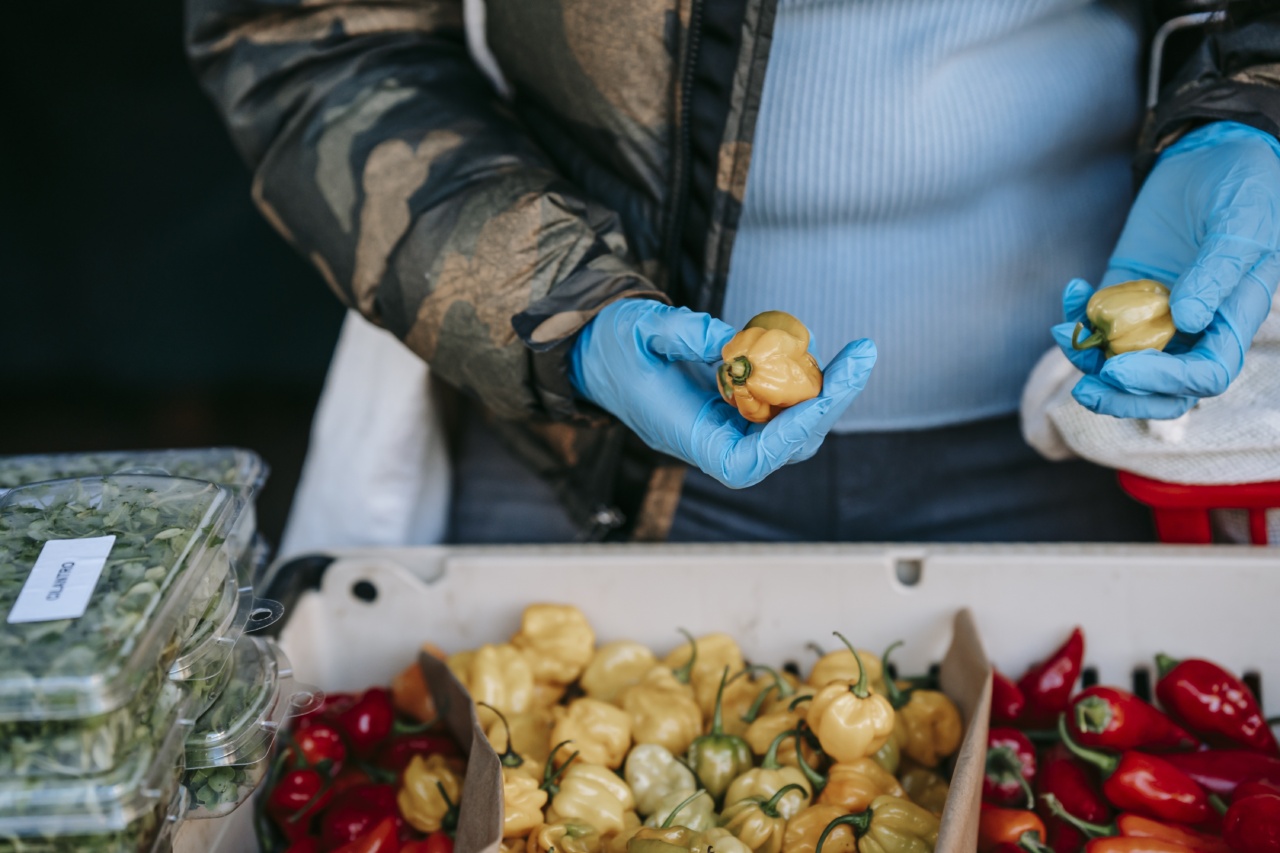Breast cancer is a significant public health issue affecting millions of women worldwide. It is estimated that one in eight women will develop breast cancer in their lifetime.
While several risk factors contribute to the development of breast cancer, including genetics, age, and hormonal factors, emerging research suggests that food choices can also play a role in influencing breast cancer risk. This article explores the impact of food choices on breast cancer risk and highlights the importance of adopting a healthy diet to reduce the incidence of this disease.
The Role of Dietary Factors in Breast Cancer Risk
Several dietary factors have been linked to an increased or decreased risk of developing breast cancer. These factors include:.
1. Diet Rich in Fruits and Vegetables
Studies have consistently shown that a diet rich in fruits and vegetables is associated with a reduced risk of breast cancer.
Fruits and vegetables are packed with essential vitamins, minerals, and antioxidants that help protect cells from damage and inhibit the growth of cancer cells. Additionally, the fiber content in fruits and vegetables aids in maintaining a healthy weight, which is crucial in reducing breast cancer risk.
2. Consumption of Whole Grains
Whole grains such as brown rice, quinoa, and whole wheat bread are excellent sources of fiber, vitamins, and minerals. Research suggests that women who consume higher amounts of whole grains have a lower risk of developing breast cancer.
The fiber content in whole grains helps regulate hormone levels and promotes gut health, both of which are important in reducing breast cancer risk.
3. Healthy Fats and Omega-3 Fatty Acids
Choosing healthy fats, such as those found in olive oil, avocados, and nuts, can have a protective effect against breast cancer. These fats provide essential nutrients and help maintain hormonal balance.
Additionally, incorporating sources of omega-3 fatty acids, such as fatty fish (salmon, mackerel) and flaxseeds, has been associated with a reduced risk of breast cancer.
4. Reducing Processed and Red Meat Consumption
Research suggests that consuming high amounts of processed and red meats can increase the risk of breast cancer.
Processed meats, such as sausages, deli meats, and bacon, contain additives and preservatives that may promote inflammation and adversely affect cell health. Red meats, including beef, pork, and lamb, are high in saturated fats, which have been associated with an increased risk of breast cancer.
It is advisable to limit the intake of these meats and opt for lean protein sources, such as poultry, fish, and plant-based proteins.
5. Limiting Alcohol Intake
Alcohol consumption has been consistently linked to an increased risk of breast cancer. Even moderate alcohol consumption can have detrimental effects on the body and disrupt hormone levels.
It is recommended that women limit their alcohol intake to reduce the risk of breast cancer.
6. Maintaining a Healthy Body Weight
Being overweight or obese increases the risk of developing breast cancer, particularly after menopause. Adhering to a healthy diet that includes balanced portions of nutrient-dense foods can assist in maintaining a healthy weight.
Excess body fat produces hormones that can promote cell growth and increase the risk of breast cancer.
7. Phytoestrogens and Breast Cancer Risk
Phytoestrogens are naturally occurring compounds found in certain plants, including soybeans, flaxseeds, and legumes. These compounds are structurally similar to estrogen and may have both estrogenic and antiestrogenic effects in the body.
Some studies suggest that consuming moderate amounts of phytoestrogens may reduce the risk of hormone receptor-positive breast cancers.
8. Antioxidant-Rich Foods
Antioxidants, such as vitamins C and E, beta-carotene, and selenium, help protect cells from damage caused by free radicals.
Including antioxidant-rich foods like berries, citrus fruits, nuts, and seeds in the diet can aid in reducing breast cancer risk. These foods also provide other essential nutrients for overall health and immunity.
9. Impact of Sugar and Sweets
Consuming high amounts of sugar and sweets has been linked to various health problems, including obesity and chronic inflammation. Emerging evidence suggests that excessive sugar intake may also increase the risk of breast cancer.
It is important to limit added sugars and opt for natural sweeteners, such as honey or maple syrup, in moderation.
10. Importance of a Well-Balanced Diet
Overall, adopting a well-balanced diet that includes a variety of nutrient-dense foods is crucial in reducing breast cancer risk.
A healthy diet should focus on whole foods, including fruits, vegetables, whole grains, lean proteins, and healthy fats, while limiting processed foods, sugary beverages, and high-fat meats.
Conclusion
While food choices alone cannot guarantee the prevention of breast cancer, multiple studies suggest a strong association between dietary factors and breast cancer risk.
By making conscious decisions to consume a diet rich in fruits, vegetables, whole grains, healthy fats, and lean proteins, while minimizing the intake of processed meats, red meats, alcohol, and excessive sugars, women can positively impact their overall health and potentially reduce their risk of developing breast cancer. It is essential to prioritize a balanced and healthy diet, making it a cornerstone of breast cancer prevention and overall well-being.




























